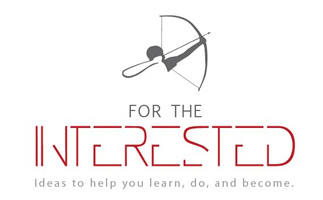 To a large extent, business strategy revolves around change—whether creating change, capitalizing on change, or surviving change. The basic concept of business is fixed: It’s always going to be a question of adding value to satisfy customers in a way that generates a sustainable level of profit. However, the way that companies go about adding value and satisfying customers is always evolving, and the business world is currently going through an extraordinary set of changes that are likely to influence students’ career paths for years to come.
To a large extent, business strategy revolves around change—whether creating change, capitalizing on change, or surviving change. The basic concept of business is fixed: It’s always going to be a question of adding value to satisfy customers in a way that generates a sustainable level of profit. However, the way that companies go about adding value and satisfying customers is always evolving, and the business world is currently going through an extraordinary set of changes that are likely to influence students’ career paths for years to come.
Change in Business—From Gradual to Disruptive
Some changes in the business environment happen gradually and often predictably, such as when an aging consumer population increases or decreases demand for particular goods and services. Companies need to anticipate and respond to such changes, but they don’t fundamentally alter the way businesses operate. Similarly, individual brands and products move in and out of fashion, but the overall market sector often remains more or less the same.
Other types of changes, however, can be downright traumatic—or exciting, depending on whether you’re benefiting from a change or getting steamrolled by it. Online retailing, digital music, mobile communication, and social media are examples of changes that permanently shifted the way many consumers behave and many businesses operate. Each of these is a disruptive innovation, a development so fundamentally different and far reaching that it can create new professions, companies, or even entire industries while damaging or destroying others.
These changes are an important phenomenon that all business students should understand, and it presents some intriguing questions that you might want to discuss with your students.
Three Questions to Discuss with Students
First, predicting whether a new technology will be truly disruptive is difficult. In many cases, multiple other forces from the technological, economic, social, and legal regulatory environments need to converge before an innovation has a major impact. For instance, without broadband wireless networks, a digital communication infrastructure, data encryption methods, a vast array of free and low-cost apps, mobile-friendly web services, and more computing power than actual computers used to have, a smartphone would just be an expensive way to make phone calls. With the combined impact of all these innovations, mobile phones have changed the way many people live and the way many businesses operate. Encourage students to keep this in mind if they’re considering joining a company with a promising new product that hasn’t caught on yet—what other changes need to occur before the product and the company will succeed?
Second, predicting when the disruption will happen is just as difficult. Many promising technologies can take years to have an impact. Mobile phones and handheld computers had been around for two or three decades before all the pieces fell into place and the smartphone era took off. Intriguing new inventions can generate a lot of interest, press coverage, and “hype” long before they have any real impact on business, and expectations sometimes outpace what the technology can deliver. This pattern repeats so often that the management consulting firm Gartner famously modeled it as a five-stage roller-coaster curve that it calls the Hype Cycle.
Third, predicting the eventual impact of a disruption is also challenging. Artificial intelligence (AI) is finally going mainstream as a business—and business communication—tool after many decades of hopes and hype, but its long-term impact is difficult to gauge at this point. Millions of jobs involve tasks and decisions that AI could conceivably do (and is now doing in many cases), but it’s impossible to pin down how disruptive it will be to the job market. AI will redefine many jobs, eliminate some, and create some—and people in most professions should be prepared to learn new skills and adapt as opportunities and expectations change.
The best advice for students as they move forward in their careers is to keep their eyes and ears open to innovations that could affect their professions and their companies. Encourage them to carefully consider the predictions they hear, but before they make any major career decisions, ask themselves what will have to happen for those predictions to come true. Predicting the future is always a dicey proposition, but with a skeptical approach, they have a better chance of separating reasonable projections from pie-in-the-sky wishful thinking.
Adapted from Courtland L. Bovée and John V. Thill, Business in Action, 9th ed. (New York: Pearson 2020), 22.

 “For many people, the bulk of their LinkedIn activity is the digital equivalent of collecting a pile of business cards. But those with the savvy to turn their LinkedIn profile into a resource for visitors will make meaningful—and profitable—connections.”
“For many people, the bulk of their LinkedIn activity is the digital equivalent of collecting a pile of business cards. But those with the savvy to turn their LinkedIn profile into a resource for visitors will make meaningful—and profitable—connections.” “Like most employers, Chieh Huang [photo, left] isn’t interested in hiring people who are overly rigid or who know it all. So he’s created a 15-minute test to help identify them.”
“Like most employers, Chieh Huang [photo, left] isn’t interested in hiring people who are overly rigid or who know it all. So he’s created a 15-minute test to help identify them.” “With 90 percent of executives already researching their company purchases on mobile devices, it won’t be long before voice search becomes common in business circles. As search continues to evolve, B2B sellers and marketers must be prepared to take advantage of new capabilities.”
“With 90 percent of executives already researching their company purchases on mobile devices, it won’t be long before voice search becomes common in business circles. As search continues to evolve, B2B sellers and marketers must be prepared to take advantage of new capabilities.” “Many professionals will probably recognize this situation: You go to a meeting or an event and, assuming that everyone there already knows you, or that you’re playing a minor role, you introduce yourself with your first name — or not at all.”
“Many professionals will probably recognize this situation: You go to a meeting or an event and, assuming that everyone there already knows you, or that you’re playing a minor role, you introduce yourself with your first name — or not at all.” “Bezos is Amazon’s chief writing evangelist, and his advocacy for the art of long-form writing as a motivational tool and idea-generation technique has been ordering how people think and work at Amazon for the last two decades—most importantly, in how the company creates new ideas, how it shares them, and how it gets support for them from the wider world.”
“Bezos is Amazon’s chief writing evangelist, and his advocacy for the art of long-form writing as a motivational tool and idea-generation technique has been ordering how people think and work at Amazon for the last two decades—most importantly, in how the company creates new ideas, how it shares them, and how it gets support for them from the wider world.”
 From the gig economy to workforce analytics to artificial intelligence in the hiring process, human resource management is undergoing some radical changes. Make sure your course stays on top of these developments with Business in Action, 9th Edition, by Bovee and Thill (Pearson).
From the gig economy to workforce analytics to artificial intelligence in the hiring process, human resource management is undergoing some radical changes. Make sure your course stays on top of these developments with Business in Action, 9th Edition, by Bovee and Thill (Pearson). "Google announced, in an email from Google Ads sent to some advertisers on Thursday, that it will handle 'campaigns, so you can focus on your business.'”
"Google announced, in an email from Google Ads sent to some advertisers on Thursday, that it will handle 'campaigns, so you can focus on your business.'”  "The secret to attracting more followers and customers is to tap the expertise of the existing ones you have," writes Josh Spector at his blog – For the Interested.
"The secret to attracting more followers and customers is to tap the expertise of the existing ones you have," writes Josh Spector at his blog – For the Interested.